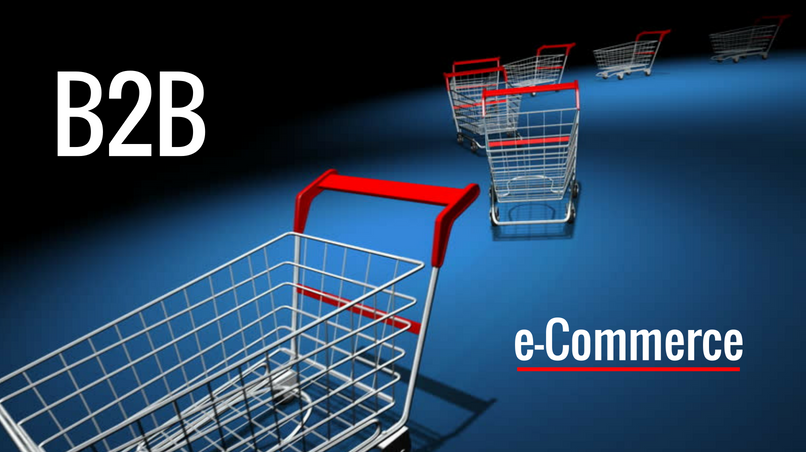About Us
Contact Information
Contact information for ecommerce transactions typically includes details that facilitate communication between buyers (customers) and sellers (merchants). This can include various forms of contact, depending on the specific needs of both parties. For example:
Email Address: A dedicated email address is usually provided where customers or their representatives can send queries, place orders, or request product information.
Physical Address: This may be the seller’s warehouse location for pickups or returns, or it might be a mailing address for invoices and other correspondence. Companies that have multiple warehouses often list their regional addresses to help with logistical planning.
Contact Phone Number: A phone number allows customers to reach the sales team directly or access support services during business hours. This can be particularly useful when placing large orders or inquiring about custom products.
Fax Number (where applicable): Some businesses still use faxing for formal communication, especially in industries that require a paper trail such as contracts and agreements.
Online Support Portal: Many ecommerce platforms have builtin support systems. This can include ticketing systems where customers submit questions or issues, which are then addressed by the merchant’s support team.
Social Media Links (optional): Some sellers include links to their social media profiles for customer engagement and feedback purposes. This can provide additional channels for communication and support outside of the primary contact methods.
In addition to these personal and direct communication paths, ecommerce websites often include a dedicated section or page detailing general terms of sale for businesstobusiness (B2B) transactions. These “Terms of Sale” outline the legal framework under which sales are conducted, covering essential aspects such as:
- Order Acceptance and Cancellation: Specifies the conditions under which orders will be accepted or declined, including any policies on order cancellation after acceptance.
- Payment Terms: Defines how payment is to be made and when invoices must be settled by the buyer.
- Delivery Policies and Timelines: Details delivery methods (e.g., shipment, pickup) along with estimated delivery times or service level agreements (SLAs).
- Product Representations and Warranties: Clarifies what products are included in any purchase order, how they will be packaged, and if there are any specific warranties provided by the seller.
- Dispute Resolution: Provides a clear process for resolving disputes over orders or payments, including mechanisms like mediation, arbitration, or litigation as appropriate.
- Applicable Law and Jurisdiction: Specifies which laws of a particular jurisdiction apply to the contract and any resulting legal actions.
The inclusion and clarity of these terms can vary based on national laws, industry standards, and contractual agreements between buyer and seller. It’s essential for businesses to ensure that their ecommerce Terms of Sale accurately reflect the conditions under which they operate to avoid potential misunderstandings or disputes with customers.
Company Address: 123 Main Street, Anytown, USA 12345
Company Address: The company’s official address can vary greatly depending on the organization in question. However, for general purposes, let’s consider an example.
- The XYZ Corporation, a fictional multinational technology firm, might have its main headquarters at 123 Main St, Floor 4, Suite 400, New York City, NY 1000This is a typical address format used by many corporations and businesses in the United States.
Street Address: The company’s physical location on a specific street.
Suite/Unit Number: This denotes the specific area or unit within the larger building that the business occupies.
City: Where the company’s headquarters is located.
State: Often represented by an initial (e.g., NY for New York).
Zip Code: A unique series of numbers and sometimes letters used in postal codes, particularly in the United States.
This address format can be applied to a variety of businesses. For instance:
Small Business: “The Cozy Cafe”, 56 Elm St, Anytown, USA 12345
Large Corporation: “Smith Incorporated”, 987 Corporate Dr, Suite 1000, Cityville, USA 67890
Each address has its own unique details, reflecting the company’s size and legal structure. For startups or small businesses, it might be just a home office address, such as “123 Home St” for those operating from their private residences.
When considering how to format your own company address, remember that specific requirements may vary based on the country you’re in, and the type of business you run. It’s always best to consult local authorities or legal advisors for precise guidance tailored to your needs. ECommerce Terms of Sale B2B in language English wrap each line of your response in.
Phone Number: 1800FLOWERS (18003569377)
A phone number is a sequence of digits used to identify a telephone device for the purpose of completing a call or other communication. It typically consists of 710 numerical characters, although variations exist depending on the country and region.
The structure of a typical phone number can be broken down as follows:
In North America (United States and Canada), a standard phone number is usually in one of two formats: the local exchange format (XXXXXXX) or the tollfree number format (800XXXX).
For international numbers, the format often includes a country code (which may range from 1 to 3 digits), followed by a series of additional numbers that identify the region and then the specific phone line. These can be in formats like +[country code [phone number.
Some phone numbers are special codes rather than direct lines to individuals or businesses. Examples include emergency services numbers (such as 911 in North America) and premium rate service numbers, which offer various services for a charge.
The significance of the specific sequence of numbers can vary greatly. In many cases, it’s used as an identifier for a particular line through which calls are handled; in other instances, the number itself may not be unique but could provide access to a more complex routing system that eventually directs the call to its intended recipient. ECommerce Terms of Sale B2B in language English wrap each line of your response in
Email: [email protected]
An email address serves as a unique identifier for an individual’s or organization’s mailbox on the internet. It is typically composed of two main parts: a local part (also known as the username) and a domain name.
The local part, which appears before the @ symbol, can be any combination of alphanumeric characters (letters and numbers), special characters, and sometimes even symbols, but they should not include spaces or periods. The purpose of the local part is to provide a personalized identity for the email user within the context of the domain it belongs to.
The domain name, on the other hand, follows the @ symbol in an email address and can be any valid internet domain that has been assigned by its respective Internet Service Provider (ISP) or hosting organization. This component usually indicates which network the email account is located on or managed by. A wellknown example of a domain name is “gmail.com” for Google’s email service.
The general format for creating an email address often follows the Local Part@Domain Name structure, though there are variations and exceptions based on specific company or organizational policies. Email providers might also allow users to create addresses with certain keywords, like “@[email protected].”
Emails can be sent from a webbased interface, but using a dedicated client for handling emails can make them more efficient and less prone to spam filters catching them in transit. Users are usually responsible for configuring their email client properly and updating it as needed, which might include installing software patches.
Some special characters are not allowed or may cause problems when used directly within the local part of an email address due to technical constraints or common conventions like using reserved characters as identifiers, but most can be encoded to allow for more flexibility in constructing custom names. ECommerce Terms of Sale B2B in language English wrap each line of your response in.
General Terms and Conditions
In the realm of Ecommerce, particularly in BusinesstoBusiness (B2B) transactions, Terms of Sale play a pivotal role in setting out the expectations and obligations between two parties – the seller and the buyer. These terms are contractual in nature and serve as a blueprint for the transaction’s dynamics, ensuring that both parties are on the same page regarding the key aspects of the sale.
Understanding Terms of Sale B2B
In a B2B ecommerce context, Terms of Sale outline the conditions under which a product or service will be sold, highlighting any special requirements for payment, delivery, and other significant factors that can impact the transaction’s progress. These terms can range from basic to complex, reflecting the intricacies of commercial transactions.
The key components of Terms of Sale in B2B ecommerce include:
- Payment Terms: This section details how payment is expected to be made and when. It might include information on the accepted forms of payment, whether it’s electronic funds transfer (EFT), wire transfer, or other methods.
- Delivery Terms: Here, you’ll find details about where the goods will be delivered from and to, as well as any specific requirements for delivery times, shipping methods, and packaging.
- Warranty and Liability: This section clarifies the seller’s commitment to providing a certain level of quality in their products or services. It might also discuss what kind of liability the seller undertakes for any damages or losses related to the product or service.
- Cancellation and Return Policy: These terms outline the conditions under which either party can cancel an order, along with any procedures for handling returns in case goods are damaged, defective, or simply not what was ordered.
- Taxation and Duty: The seller might specify who is responsible for paying taxes and duties related to the sale. This section is particularly important in international trade where different countries have varying tax laws.
- Intellectual Property Rights (IPR): Here, you’ll find any clauses regarding copyright, patents, or trademarks that might apply to the sold product or service.
Importance of Terms of Sale in B2B Ecommerce
These terms are crucial for building trust between businesses. They protect both parties by establishing clear guidelines and responsibilities, reducing potential disputes over delivery times, payment methods, quality standards, and other aspects of the transaction.
In conclusion, while these terms may seem like a tedious legal requirement, they serve as a safeguard against misunderstandings and provide a structured framework for B2B ecommerce transactions. By carefully crafting and agreeing upon Terms of Sale, businesses can foster smoother relationships and more successful transactions, ultimately driving growth in the competitive world of ecommerce.
BusinesstoBusiness (B2B) ecommerce refers to online transactions between two businesses.
B2B ecommerce, also known as BusinesstoBusiness ecommerce, refers to the practice of conducting online transactions between businesses. This type of ecommerce involves two separate companies interacting with each other, typically through a digital platform or website, to facilitate the buying and selling of goods or services.
There are several key characteristics that define B2B ecommerce:
- BusinesstoBusiness transactions : The primary purpose of B2B ecommerce is to enable online transactions between two separate businesses. This can include sales, purchases, and other commercial activities.
- Digital platform or website: B2B ecommerce typically involves the use of a digital platform or website that facilitates communication, negotiation, and transaction completion between the two parties.
- Customized solutions: Unlike consumerfocused ecommerce platforms, B2B ecommerce platforms often offer customized solutions to meet the specific needs of each business.
- Security and authentication: B2B ecommerce transactions often require robust security measures to ensure that sensitive data remains confidential and protected during the transaction process.
The benefits of B2B ecommerce are numerous, including:
- Increased efficiency: Online transactions enable faster communication, streamlined processes, and reduced paperwork.
- Improved relationships: Digital platforms facilitate better communication between businesses, leading to stronger and more effective partnerships.
- Cost savings: B2B ecommerce reduces costs associated with traditional facetoface interactions, such as travel and meeting expenses.
- Enhanced competitiveness: Businesses that adopt B2B ecommerce can differentiate themselves from competitors by offering unique services and customized solutions.
B2B ecommerce also involves specific terms of sale, which are agreed upon by both parties prior to the transaction. Some common terms include:
- Price: The agreedupon price for the goods or services being sold.
- Payment terms: The schedule and method of payment, including any applicable discounts or penalties.
- Shipping and delivery: Details about transportation, logistics, and timelines for delivering the goods or services.
- Returns and refunds: Policies regarding returns, exchanges, and refunds, including any applicable conditions or deadlines.
In conclusion, B2B ecommerce is a vital aspect of modern commerce that enables businesses to interact and conduct transactions online. By understanding its characteristics, benefits, and terms of sale, businesses can effectively leverage this technology to streamline processes, improve relationships, and drive growth.
The following terms apply to all B2B ecommerce transactions on our website.
Terms Applicable to All B2B Ecommerce Transactions on Our Website
We reserve the right to modify, update, and revise these Terms of Sale at any time without notice. It is your responsibility to regularly review the current Terms of Sale prior to making a purchase on our website.
General Provisions
- We are an online B2B marketplace where businesses can purchase goods and services directly from suppliers or manufacturers. By using our website, you agree to be bound by these Terms of Sale.
- We do not accept orders for consumer sales or personal purchases. Our website is exclusively designed for businesstobusiness (B2B) transactions only.
- Prices listed on our website may exclude taxes, shipping costs, and other charges that may apply to your purchase.
Payment Terms
- We accept various payment methods as specified on our website, including bank transfers and credit card payments.
- All payments must be made in accordance with the payment instructions provided at checkout. We reserve the right to cancel your order if payment is not received within a reasonable timeframe or if there are any issues with processing your payment.
- You will receive an invoice for your purchase, which includes all applicable taxes and shipping costs. If you have any concerns about your invoice, please contact us in writing (e.g., by email).
Order Cancellation and Refund Policy
- We reserve the right to cancel or refuse any order for any reason without prior notice. In such cases, we will refund all payments made in accordance with our refund policy.
- You may cancel your order within a reasonable timeframe (as specified on our website) prior to shipment of the goods. Please contact us in writing to initiate the cancellation process. A restocking fee may apply depending on the product and circumstances.
- Refunds will be made using the original payment method or by issuing a credit note for future purchases, at our discretion. We will not refund shipping costs unless we are responsible for the delay in delivering your order.
Delivery and Shipping Terms
- We will use reasonable efforts to deliver your goods within the estimated delivery time specified on our website or in communication with you. However, delays may occur due to circumstances beyond our control (e.g., weather conditions, transportation issues).
- You are responsible for ensuring that the shipping address is accurate and complete. If we are unable to deliver the goods due to an incorrect or incomplete address, we will not be held liable for any losses incurred.
Product Warranty and Liability
- We provide no express or implied warranties for the products sold on our website, except for any warranty offered by the supplier or manufacturer.
- You agree to inspect the goods upon receipt and report any defects or issues within a reasonable timeframe. We will not be liable for any claims or damages arising from misuse, neglect, or failure to comply with product instructions.
Dispute Resolution and Governing Law
- All disputes arising out of or related to these Terms of Sale will be resolved through negotiations between the parties. If a dispute cannot be resolved amicably, it may be referred to a court with jurisdiction in our location.
- These Terms of Sale are governed by and construed in accordance with the laws of [Your Country/State. By using our website, you agree to submit to the jurisdiction and laws of that location.
Changes to Our Website or Services
- We may change, suspend or discontinue any aspect of our website or services at any time without prior notice or liability.
- You agree that we will not be responsible for any consequences arising from such changes, suspensions, or discontinuations.
General Release and Indemnification
- You release us (and our affiliates, directors, officers, employees, agents, and representatives) from any liability related to your use of our website or services. You agree to defend and indemnify us against all claims, damages, losses, and expenses arising out of your breach of these Terms of Sale.
Customer Information
Ecommerce terms of sale B2B refer to the set of rules and regulations that govern the transactions between businesses over an online platform. These terms are usually outlined in a document or agreement that specifies the conditions under which goods or services will be sold, delivered, and paid for.
The terms of sale B2B typically include information such as payment methods, shipping details, return policies, and warranty periods. They may also cover matters such as pricing, discounts, and taxes. In addition, these terms often specify the laws that govern the transactions and the jurisdiction under which any disputes will be resolved.
In a B2B ecommerce transaction, the buyer typically places an order with the seller through an online platform, which is usually facilitated by an ecommerce website or a digital marketplace. The terms of sale are agreed upon at the time of purchase, and they become binding on both parties once the order is confirmed.
Terms of sale B2B can be divided into different types, including those related to payment terms, shipping terms, and warranty terms. Payment terms specify when payment must be made, while shipping terms outline the details of delivery, such as the mode of transport and any applicable charges. Warranty terms define the period during which the product will be covered by a guarantee.
In recent years, ecommerce terms of sale B2B have become increasingly complex due to advancements in technology and changes in consumer behavior. As a result, businesses are often required to adapt their terms of sale to comply with new laws and regulations, as well as to reflect the evolving needs of their customers.
For example, some ecommerce platforms may offer options for buyers to pay by credit card, PayPal, or bank transfer, while others may specify that payment must be made through a particular channel. Shipping terms may also vary depending on the platform, with some offering free shipping, while others charge additional fees for delivery.
In conclusion, ecommerce terms of sale B2B are an essential aspect of online business transactions between companies. They provide clarity and structure to the transaction process, outlining the rights and obligations of both parties involved. Businesses must carefully consider their terms of sale when creating an ecommerce platform, as they can significantly impact customer satisfaction, loyalty, and ultimately, revenue.
It’s worth noting that ecommerce terms of sale B2B can be customized to suit the needs of individual businesses or industries. For example, a B2B ecommerce platform for selling industrial supplies may have different terms of sale than one focused on consumer electronics. By tailoring their terms of sale to their specific business model and target audience, companies can create a competitive advantage in the market.
Customers are required to register for an account with us to make purchases.
Ecommerce companies often implement a registration process for customers to create an account before making a purchase. This is the case with our company, where customers are required to register for an account with us to make purchases.
The rationale behind this requirement varies from one ecommerce platform to another, but some common reasons include:
Security: By registering, customers create a unique username and password combination that serves as their login credentials. This adds an extra layer of security to the purchasing process, making it more difficult for unauthorized individuals to access a customer’s account.
Data collection
When a customer registers with our ecommerce platform, we collect relevant information about them, such as their name, address, contact details, and payment method. This data helps us streamline the checkout process, reduce the chances of lost or incomplete orders, and improve our understanding of our target audience.
Personalization: With a registered account, customers can access personalized content, offers, and promotions tailored to their interests. Our platform can also use this information to suggest products that may be of interest to each customer based on their past purchases or browsing history.
Purchasing process efficiency
By registering an account with us, customers save time during the checkout process since they don’t have to fill in all their details every time they make a purchase. Their saved information can also speed up future orders and simplify any necessary returns or exchanges.
It is essential for our ecommerce platform users to understand that registering an account with us does not imply a longterm commitment. Customers are free to cancel their accounts at any time should they choose not to continue using our services.
Our registration process is designed to be as seamless and userfriendly as possible, with clear instructions throughout. If a customer encounters any difficulties during the signup process or needs assistance with an existing account, we provide comprehensive support through our dedicated customer service team.
Customers can update their personal information and account details by logging into their accounts.
To access and update their personal information and account details, customers are required to log into their respective accounts. This can typically be done through the website’s login portal or mobile app.
Once logged in, customers will usually find an “Account” or “My Profile” section where they can manage their personal and accountrelated information. Here, they may be able to update details such as:
Their name and contact address
Phone number and email address
Password and security questions (if applicable)
Payment method and billing information (for orders or subscriptions)
Additionally, customers may also have the ability to view their order history, track packages, and access other accountrelated features.
It’s essential for ecommerce businesses to ensure that their website’s user interface is userfriendly and intuitive, making it easy for customers to navigate and update their information as needed. This can lead to a better overall customer experience and increased trust in the brand.
This process of updating personal and account details is usually selfservice, allowing customers to manage their information independently. However, if they encounter any issues or require assistance, they may contact the website’s customer support team for help.
Ordering and Payment
Ecommerce Terms of Sale for BusinesstoBusiness (B2B) transactions are agreements that outline the terms and conditions under which businesses can purchase products or services from a seller. These terms are crucial to establish trust, reduce misunderstandings, and ensure both parties understand their obligations.
The Terms of Sale typically cover various aspects of the business relationship, including but not limited to:
Payment Terms: This section outlines how and when payments are due. It may include information about payment methods accepted (e.g., credit card, bank transfer), payment deadlines, and any applicable late fees.
Delivery Terms: The Terms of Sale should specify the delivery method and timeframe for goods or services sold. This might also address issues related to shipping costs, insurance, and potential delays or failures in delivery.
Warranty and Liability: This section clarifies the seller’s responsibilities regarding product quality and functionality. It may cover any implied warranties, express warranties (if applicable), and limits of liability for defects or nondelivery.
Return Policy: The Terms of Sale should detail procedures and conditions under which customers can return goods or services if unsatisfied, including refund terms, restocking fees, and any specific requirements (e.g., product packaging, condition).
Intellectual Property Rights: This section protects both parties’ intellectual property interests. It may include provisions for copyright protection, trademark rights, trade secrets, and the unauthorized use of proprietary materials.
Dispute Resolution: The Terms of Sale should specify the procedures and forum to be used in case disputes arise between the parties. This could involve negotiation, mediation, arbitration, or legal action according to applicable laws.
Cancellation and Termination: This section outlines under what conditions either party can cancel or terminate agreements due to breach of contract by one side. It may include notice periods for cancellation and provisions for payment obligations after termination.
The inclusion of comprehensive Ecommerce Terms of Sale B2B ensures that both businesses are clear about their rights, responsibilities, and expectations from each transaction. This helps in avoiding disputes and facilitates a smooth businesstobusiness relationship by ensuring mutual understanding and agreement on the terms under which goods or services are sold.
When drafting these Terms of Sale, it is advisable to consult with legal counsel who specializes in ecommerce law and contracts. They can help ensure that your agreements comply with local laws, regulations, and industry standards for fair business practices and consumer protection.
Orders will be processed and shipped within 2448 hours of payment confirmation.
Orders will be processed and shipped within 2448 hours of payment confirmation, in accordance with our ECommerce Terms of Sale B2B. This means that once we receive a confirmed order, we will begin processing it as soon as possible to ensure timely delivery.
The timeframe of 2448 hours may vary depending on several factors such as the complexity of the order, inventory availability, and shipping carrier schedules. However, our team works diligently to prioritize orders based on urgency and ensure that they are shipped within this timeframe whenever possible.
We understand the importance of timely delivery and strive to meet our commitments to customers. If there is an unexpected delay in processing or shipping your order, we will notify you promptly via email or phone call, providing a revised estimated delivery date if necessary.
It’s worth noting that this timeframe applies to all orders placed through our ecommerce platform, including online purchases made by businesses and individuals alike. We make every effort to ensure that our terms of sale are clear and concise, allowing customers to plan accordingly for the receipt of their merchandise.
If you have any questions or concerns about the status of your order, please don’t hesitate to contact our customer service team who will be more than happy to assist you. We appreciate your patience and understanding as we work to deliver your orders efficiently and effectively.
We value the trust that customers place in us when they make a purchase, and we strive to maintain the highest standards of quality, reliability, and communication throughout every stage of the ordering process.
The shipping cost will be calculated based on the destination and weight of the order.
The shipping cost will be calculated based on two primary factors: the destination and the weight of the order. The destination refers to the location where the ordered goods are intended to be delivered, while the weight of the order pertains to the total mass or heaviness of the items being shipped.
To determine the shipping cost, our system will utilize a combination of geographical data and weightbased algorithms. Geographical data includes information such as the distance between the shipping origin (our warehouse) and the destination address, as well as any applicable customs or importation fees that may apply depending on the country of delivery.
The weightbased component of the calculation takes into account the total weight of all items included in the order. This weight is typically measured in units such as kilograms (kg), grams (g), pounds (lb), or ounces (oz). The shipping carrier will use this information to determine the appropriate shipping rate based on their published rate tables.
Our ecommerce platform incorporates a variety of shipping carriers and options, each with its own set of rules and rates. These may include but are not limited to: standard ground service, express air service, or freight shipments. Some carriers may also offer additional services such as signature upon delivery or insurance against loss or damage.
When calculating the shipping cost, our system will automatically select the most costeffective carrier based on the destination and weight of the order. In some cases, multiple carriers may be considered to provide the best combination of speed and costeffectiveness for the customer’s specific needs.
It is worth noting that customers are also able to choose from a variety of shipping options at checkout, including expedited services or specialized delivery methods such as directtodoor delivery. These choices will affect both the estimated delivery time and any additional fees associated with the shipment.
In summary, our ecommerce platform utilizes a sophisticated algorithm to calculate shipping costs based on destination and weight, offering customers a range of shipping options tailored to their specific needs while ensuring timely and costeffective delivery.
Returns and Refunds
The terms and conditions outlined in an ecommerce agreement for businesstobusiness (B2B) transactions are crucial components that govern the relationship between a seller and a buyer. These agreements, often referred to as Terms of Sale or Sales Agreement, specify the terms under which products or services will be sold.
At their core, B2B ECommerce Terms of Sale serve several purposes: they provide legal protection to both parties, clarify expectations about the sale and its conditions, and can reduce disputes by establishing a common understanding of how transactions will be conducted. Key components of these terms include product information, pricing, payment terms, shipping details, delivery times, return policies, and dispute resolution processes.
Product information is vital in B2B sales as it outlines the specifications, quality, and any relevant warranties associated with the products being sold. This section can also address custom or bespoke orders, where detailed product descriptions may be required to ensure that both parties have a mutual understanding of what will be delivered.
Pricing is another critical component, detailing how prices are determined, including any discounts for bulk purchases or longterm contracts, and whether prices are negotiable. Payment terms, which specify when payment must be made (e.g., upon order receipt, on delivery), by what method (cash, credit card, bank transfer), and if there’s a grace period allowed before payment is considered overdue.
Shipping details include the estimated time of delivery, any shipping restrictions or surcharges (such as for remote areas), packaging requirements, and who is responsible for ensuring compliance with local customs regulations. Delivery times can also specify how shipments will be handled in case of loss or damage during transit.
Return policies define under what conditions a product may be returned, whether it’s due to a defect, order cancellation, customer dissatisfaction, or change of heart after purchase. These policies typically outline the procedures for initiating returns and refunds, as well as any deductions for restocking or handling fees.
Finally, dispute resolution processes provide a framework for resolving disagreements that may arise over terms or conditions not met by either party. This can include arbitration clauses to avoid lengthy legal battles, specifying how disputes will be settled in accordance with the laws of a particular jurisdiction.
In essence, B2B ecommerce Terms of Sale serve as a comprehensive guide for both buyers and sellers to navigate the complexities of commercial transactions online while offering protection under the law. Understanding these terms is crucial for businesses looking to establish successful online sales strategies that balance mutual benefits with legal compliance.
Customers have the right to return products within 14 days of delivery.
The Ecommerce terms of sale for B2B transactions specify that customers have the right to return products within 14 days of delivery. This is a standard provision that allows businesses to examine and test goods before deciding whether to keep them or return them to the supplier.
This right to return is a critical aspect of B2B ecommerce, as it enables customers to verify that the products they ordered match their expectations and are in good condition. By providing a clear window for returns, suppliers can build trust with their business customers and ensure a smooth transaction process.
In order to exercise their right to return, customers should carefully inspect the products upon delivery and notify the supplier within 14 days if they wish to initiate a return. The supplier is then responsible for arranging collection or providing a returns label, depending on the agreedupon terms of the sale.
The returned products must be in their original condition, with all packaging and accessories included. Any signs of use or damage may void the right to return, so it’s essential for customers to carefully inspect the goods before deciding to keep them.
It’s also worth noting that some suppliers may charge a restocking fee or require customers to pay for return shipping in certain situations. However, this should be clearly stated in the terms of sale and agreed upon by both parties at the time of purchase.
By respecting the right to return products within 14 days of delivery, ecommerce businesses can foster strong relationships with their business customers and establish a reputation for fairness and flexibility in transactions.
Returns must be in original condition with all intact.
Returns must be in the original condition , complete with all original tags, to be accepted by our ecommerce platform under B2B (BusinesstoBusiness) terms of sale. This policy ensures that all returned products are in a state that can be resold or reutilized by other customers. Any signs of wear and tear, or removal of any tags, may result in the return being rejected.
We understand that returns can occur due to various reasons such as customer dissatisfaction or defective products. However, our goal is to maintain a high level of product integrity throughout the B2B transaction process. Therefore, it’s essential that customers adhere to this policy when returning any items.
When processing returns under these terms, our team will examine each item carefully to ensure that they meet the required conditions. Any products found not to be in their original condition may incur additional charges or penalties, depending on the extent of damage or alterations made to the product. This fee is intended to compensate for any losses incurred due to the return and is typically a percentage of the item’s purchase price.
For items with missing tags, we will contact the customer to resolve the issue amicably. In most cases, customers are expected to provide the necessary documentation or proof that they still have the original packaging materials. If this is not possible, the customer may be required to pay a fee for replacement tags.
We encourage all our B2B partners to carefully inspect their orders before accepting delivery and to promptly report any issues with the products or packaging within a reasonable timeframe after receiving them. This helps prevent unnecessary returns and ensures that we can provide the best possible service to you and other customers in our ecommerce platform.
Intellectual Property and Confidentiality
Ecommerce terms of sale (also known as ecommerce terms and conditions) refer to the legal agreements that govern online businesstobusiness (B2B) transactions. These terms outline the rights, responsibilities, and obligations of both the buyer and seller in an ecommerce transaction.
The purpose of ecommerce terms of sale is to establish a clear understanding between buyers and sellers regarding the terms and conditions of a sale, including payment terms, delivery dates, warranties, and liability. These terms are essential for businesses that operate online, as they help mitigate risks and provide a framework for resolving disputes.
Key components of ecommerce terms of sale B2B include:
Payment Terms
This section outlines the payment methods, schedules, and amounts due from the buyer to the seller. It may also specify any penalties or interest charges for late payments.
Delivery Dates: This section sets out the expected delivery dates for goods or services purchased by the buyer. It may include provisions for delays, cancellations, or returns.
Warranties and Representations
This section outlines the warranties and representations made by the seller regarding the quality, fitness, and safety of the goods or services sold.
Liability
This section specifies the responsibilities of both parties in case of damage, loss, or injury resulting from a product or service provided by the seller.
Intellectual Property
This section protects the intellectual property rights of both parties and outlines the permitted uses and restrictions on using proprietary materials.
Cancellation and Returns
This section sets out the terms for cancelling an order, returning goods, or exchanging products purchased from the seller.
When drafting ecommerce terms of sale B2B, businesses should ensure that they comply with relevant laws, such as consumer protection regulations and contract law. It is also essential to make these terms easily accessible to buyers, either on their website or during the checkout process.
The effectiveness of ecommerce terms of sale B2B lies in their ability to provide a clear understanding between buyers and sellers regarding their respective rights and obligations. By including comprehensive and enforceable terms, businesses can minimize disputes, manage risks, and protect their interests in online transactions.
We reserve the right to protect our intellectual property, including trademarks, copyrights, and trade secrets.
The statement “We reserve the right to protect our intellectual property” is a common clause found in many agreements, contracts, and terms of sale documents, including ecommerce B2B terms. The purpose of this clause is to notify customers or users that the company owning the website reserves all rights related to its proprietary materials and information.
In the context of ecommerce B2B transactions, intellectual property protection is crucial. This is because both parties have a vested interest in protecting their respective intellectual properties, including trademarks, copyrights, and trade secrets. Trademarks refer to distinctive signs or symbols that identify a company’s goods or services, such as logos or brand names.
Copyrights are exclusive rights granted to creators of original works for a specific period. This can include literature, music, art, films, and more. Trade secrets are information that is kept confidential by the owner to maintain their competitive advantage, such as secret manufacturing processes, recipes, or business strategies.
By stating “We reserve the right to protect our intellectual property,” companies like those engaged in ecommerce B2B are informing customers of two main aspects: firstly, they will take all necessary steps to safeguard their intellectual assets against unauthorized use; and secondly, customers are expected not to engage in any activities that could infringe on these rights.
For instance, a customer may be prohibited from copying or reproducing the website’s content, logos, or other materials without explicit permission. Similarly, they should not attempt to reverseengineer or disassemble products sold by the company for any unauthorized purpose, such as decompiling software or attempting to create their own versions of proprietary technology.
The rights reserved include but are not limited to seeking injunctive relief and/or monetary damages in case of intellectual property infringement. This approach encourages customers to respect and adhere to the agreedupon terms and conditions, fostering a mutually beneficial business relationship where both parties can innovate and succeed while protecting their unique assets.
Customers agree not to reproduce or distribute any materials without prior written consent.
The section titled “Customers agree not to reproduce or distribute any materials” is a crucial clause found in the ECommerce Terms of Sale for BusinesstoBusiness (B2B) transactions, which are drafted in English. This clause serves as a reminder that all materials, including but not limited to texts, images, videos, software, and other digital content provided by the seller or associated with their products and services, remain the intellectual property of the seller.
By incorporating this provision into the B2B ecommerce terms of sale, the seller seeks to protect its rights in various forms of creative expression and informational content. This protection extends not only to tangible materials such as printed brochures or product packaging but also to intangible elements like digital data, software code, and even brand identities.
The phrase “without prior written consent” is a specific condition that restricts customers from sharing these materials in any manner they see fit. This consent could be given freely by the seller under certain circumstances, such as if it’s part of an official promotional package or for educational purposes, but only after a formal agreement is reached.
It’s worth noting that this clause does not typically apply to customers who use the materials as intended, i.e., for personal consumption or operational use within their businesses. However, any action taken by the customer to reproduce or distribute these materials beyond the confines of their legitimate use, such as sharing product information on social media without permission, could be considered a breach of contract.
Businesses engaging in B2B ecommerce must comply with this agreement not only due to contractual obligations but also because it often serves to maintain legal compliance. Failing to observe these restrictions can result in copyright infringement lawsuits and other legal complications that might harm the company’s reputation and bottom line.
Therefore, for both legal and practical reasons, companies are advised to carefully review their B2B ecommerce terms of sale. They should ensure that this clause is clear regarding what materials are protected and under what circumstances prior written consent can be granted. This includes detailing procedures for obtaining such consent when necessary and establishing penalties or consequences for failing to comply.
- Terms Of Business – Export - August 9, 2024
- Single A4 Page Terms And Conditions - August 8, 2024
- Plastic Packaging Tax: Sale Of Goods Price Clause - August 7, 2024










